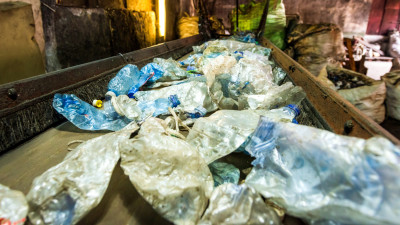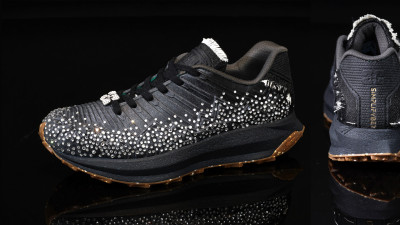Recycling single-fibre fabrics – such as denim jeans and wool sweaters – is mechanically possible, but garments are often made from a blend of different fibres, which has historically caused a host of challenges for recycling them. Even for many of the most popular blends such as cotton and polyester, commercially viable separation, sorting and recycling technologies are not yet available. As a result, used apparel of blended or unknown materials are typically discarded in landfills or down-cycled into insulation, carpeting or other low-value applications.
H&M Partners to Develop More Textile Recycling Technologies
Recycling single-fibre fabrics – such as denim jeans and wool sweaters – is mechanically possible, but garments are often made from a blend of different fibres, which has historically caused a host of challenges for recycling them. Even for many of the most popular blends such as cotton and polyester, commercially viable separation, sorting and recycling technologies are not yet available. As a result, used apparel of blended or unknown materials are typically discarded in landfills or down-cycled into insulation, carpeting or other low-value applications.
In a €5.8 million effort to change this, the non-profit H&M Foundation and the Hong Kong Research Institute of Textiles and Apparel (HKRITA) have entered a four-year partnership to develop technologies to recycle blended textiles into new fabrics and yarns, and plan to license the technology widely “to ensure broad market access and maximum impact.”
“This is one of the biggest and most comprehensive efforts ever for textile recycling,” H&M Foundation Project Manager Erik Bang said in a statement. “The overall aim for us as a Foundation is to protect the planetary boundaries and work to ensure living conditions. We want to develop at least one ready technology to recycle clothes made from textile blends into new clothes. This would be a major breakthrough in the journey towards a closed loop for textiles in the fashion industry.”
The H&M Foundation and HKRITA announced this week that they are developing a series of research projects, for which HKRITA will conduct the bulk of the research and work to commercialize the outcomes. HKRITA’s research will also be supported – financially and otherwise – by the Hong Kong SAR Government’s Innovation and Technology Fund.
Exactly how much money the H&M Foundation will contribute will be determined by the surplus from H&M’s global in-store Garment Collecting program. The retailer donates the program proceeds to the Foundation, of which half is allocated to research on textile recycling. To date, the H&M Foundation has donated €1.6 million to HKRITA. The H&M Foundation is the initiator and main funder of the research projects for 2016-2020 and the publicly-funded HKRITA will be co-funding them.
“HKRITA is very excited about the work in this series of applied research projects. We look forward to providing practical solutions to a pressing local and global challenge,” said Edwin Keh, the Chief Executive Officer of HKRITA. “We are grateful to partner with H&M Foundation for making our work possible.”
H&M is already using recycled fibers in some of its clothing, including recycled cotton from textiles collected through its in-store Garment Collecting initiative. The partnership with HKRITA will allow the company to expand its program to include more fibers and blended textiles into its new clothing (and that of other retailers), building on the H&M Foundation's other partnerships. For example, the Foundation has been working with Kering and pioneering textile upcycler Worn Again to market Worn Again’s first-of-its-kind textile-to-textile chemical recycling technology that is able to separate and extract polyester and cotton from old or end-of-use clothing and textiles. The H&M Foundation also runs the Global Change Award innovation challenge, the second edition of which is accepting applications through October 31, 2016.








